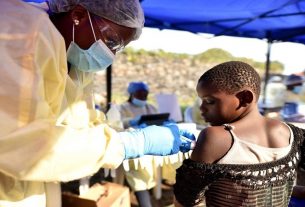Through the observation of mice, scientists determined when a male rodent is exposed to a sick female mouse, it avoids physical contact and evades animal instincts. The physical distancing between the animals is due to the recognition of odors caused by some disease or bacterial components induced by the researchers. Likewise, the response of the rodents during the experiment was mainly developed by the brain amygdala, which is responsible for storing emotional reactions.
In mice, as in many other animals, behaviors such as courtship and fighting are naturally programmed. In this way, when animals come into contact, they involve instinctive stimuli in their behavior with others. However, these behaviors can change according to specific circumstances and can even be canceled and thus prevent mating.
Researchers at the Picower Institute for Learning and Memory at the Massachusetts Institute of Technology (MIT) found that when male mice were found versus females showing signs of disease, they decreased their interaction. Likewise, they managed to identify, the behavior of these mice is controlled by the brain amygdala, which detects the odors of sick animals and activates an emergency signal. “As a community, it is very important that animals can socially distance themselves from sick individuals,” said Gloria Choi, a professor of brain and cognitive sciences at MIT and a member of the Picower Institute.
According to the researcher, the scientists planned to find a brain mechanism capable of being activated when an animal encounters a diseased member of the same species. With studies prior to the one conducted by Choi, in conjunction with Jeong-Tae Kwon, lead author of the study, the researchers noted, mice use smell to identify other sick animals. The researchers also injected a bacterial component called LPS into the rodents, which produces mild inflammation as a sign of disease. Thus, male mice that detected the substance or some disease in female mice, moved away and evaded mounting them to mate.
The scientists found, within the tonsillar system there is a part called COApm, which is activated in the brain of the mice when it is stimulated by the substance LPS. Likewise, other experiments indicated that COApm activity is necessary to suppress mating behavior in males in the presence of diseased females. When the COApm of the mice was deactivated, they tried to mate again with the females despite being ill.
A new approach specified by Professor Choi indicates, in the future it will be possible to test whether the tonsillar system is related to the social behavior of animals. The mice physically distancing themselves from other patients is an example of this, and, thus, the same scheme could be applied to human beings.



